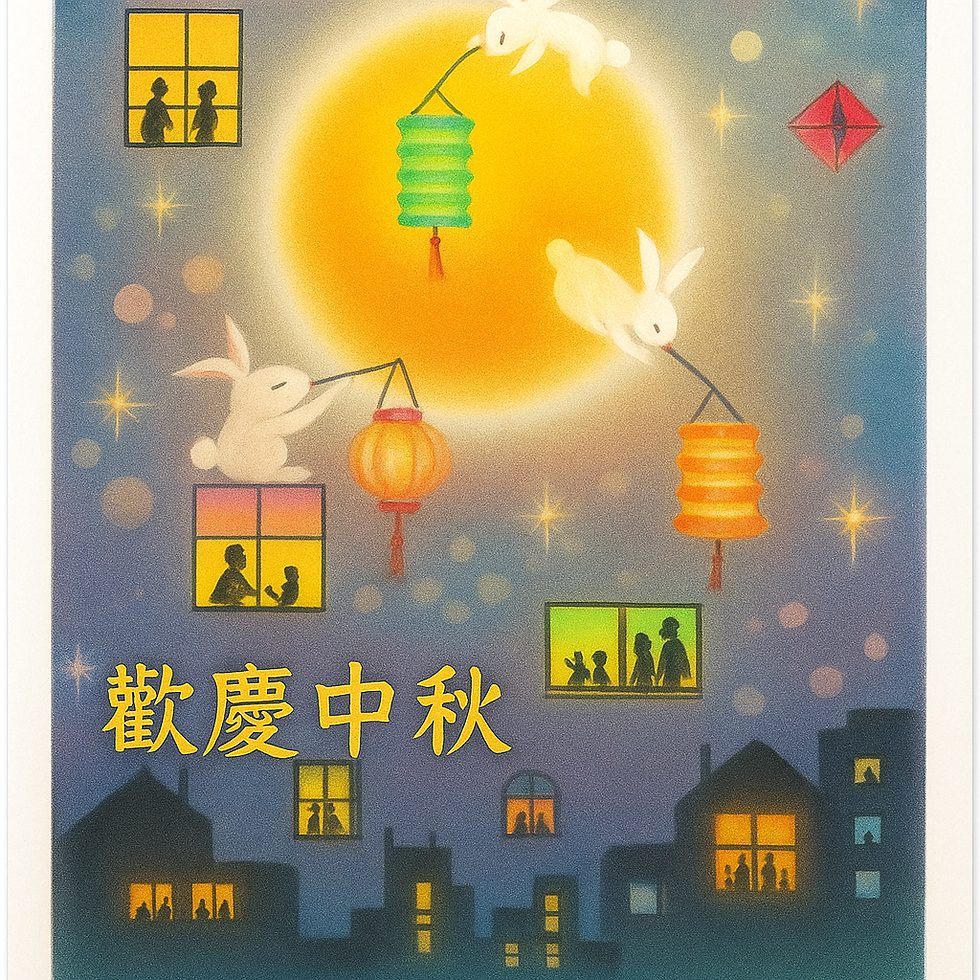端午節 Dragon Boat Festival
- vkhong
- Jun 3, 2022
- 3 min read

端午節是東亞文化圈的傳統節日,定在每年農曆五月初五,是夏季送離五瘟神,驅除瘟疫的節日。“端”字即“开端”,“初始”的意思,因此“端五”就是“初五”。而按照历法看,五月正是“午”月,因此“端五”也就渐渐演变成了现在的“端午”。《燕京岁时记》记载:“初五为五月单五,盖端字之转音也”。仲夏登高,顺阳在上,因此也別稱端阳节、端日节。因五月五日,又称重午、重五。民间也俗称三五月节、五日節、午日节。另外还有夏节、天中節、午日等名称。也根据习俗称为菖蒲節、艾节、粽子節。
在大中華地區、日本、琉球、新馬,端午節會划龍舟。划龍舟較為普遍的說法,是因戰國時代愛國詩人屈原因不得重用而投江,民眾競相划船希望找到他的屍體。其實東亞地區的划龍舟並不限於端午才舉行,龍舟競渡的習俗也早於屈原之前已經存在,如姑蘇就以龍舟有迎接潮水之神伍子胥的習俗。古人將船當作送走災邪的工具,既然送邪,也就越快越好,於是便衍生出端午競渡習俗了。古代參加競渡的龍舟已很講究:船身窄而長,還有龍頭、龍尾和鱗甲等裝飾,船上結七彩,張旗傘。競渡時鑼鼓喧鬧、鞭炮齊鳴、萬人喝彩,場面極為壯觀。可見龍舟競渡其實也是驅邪的一種行為,其原始宗教的意味濃於悼念忠忱的愛國者。
The Dragon Boat Festival (Duanwu Festival) is a traditional Chinese holiday which occurs on the fifth day of the fifth month of the Chinese calendar, which corresponds to late May or June in the Gregorian calendar.
Duanwu as the festival is called in Mandarin Chinese, literally means "starting/opening horse", i.e., the first "horse day" (according to the Chinese zodiac/Chinese calendar system) to occur on the month; however, despite the literal meaning being wǔ, "the [day of the] horse in the animal cycle", this character has also been interchangeably construed as wǔ (Chinese: 五; pinyin: wǔ) meaning "five". Hence Duanwu, the "festival on the fifth day of the fifth month".
The Mandarin Chinese name of the festival is "端午節" (simplified Chinese: 端午节; traditional Chinese: 端午節; pinyin: Duānwǔjié; Wade–Giles: Tuan Wu chieh) in China and Taiwan, and "Tuen Ng Festival" for Hong Kong, Macao,Malaysia and Singapore.
It is pronounced variously in different Chinese dialects. In Cantonese, it is romanized as Tuen1 Ng5 Jit3 in Hong Kong and Tung1 Ng5 Jit3 in Macau. Hence the "Tuen Ng Festival" in Hong Kong Tun Ng (Festividade do Barco-Dragão in Portuguese) in Macao.
Dragon boat racing has a rich history of ancient ceremonial and ritualistic traditions, which originated in southern central China more than 2500 years ago. The legend starts with the story of Qu Yuan, who was a minister in one of the Warring State governments, Chu. He was slandered by jealous government officials and banished by the king. Out of disappointment in the Chu monarch, he drowned himself into the Miluo River. The common people rushed to the water and tried to recover his body. In commemoration of Qu Yuan, people hold dragon boat races yearly on the day of his death according to the legend. They also scattered rice into the water to feed the fish, to prevent them from eating Qu Yuan's body, which is one of the origins of zongzi.
=====
MANDARIN-CHINESE COURSE
Wanna speak Mandarin with your friends, colleagues and clients?
Systematic and effective learning based on international syllabus (HSK, TOCFL). Learn speaking, listening, reading and writing Chinese ALL at the same time and communicate in all ways! No more feeling handicapped when texting or emailing your Chinese friends!
Group, Private & Corporate Class available!
Suitable for adults and teenagers, total beginners
For more information, please PM or contact +60122111642/hibiscus.academy.kl@gmail.com; or
Visit us: HIBISCUS ACADEMY, 182-1A, JALAN TUN HS LEE, KUALA LUMPUR / www.hibiscusacademy.co




Comments